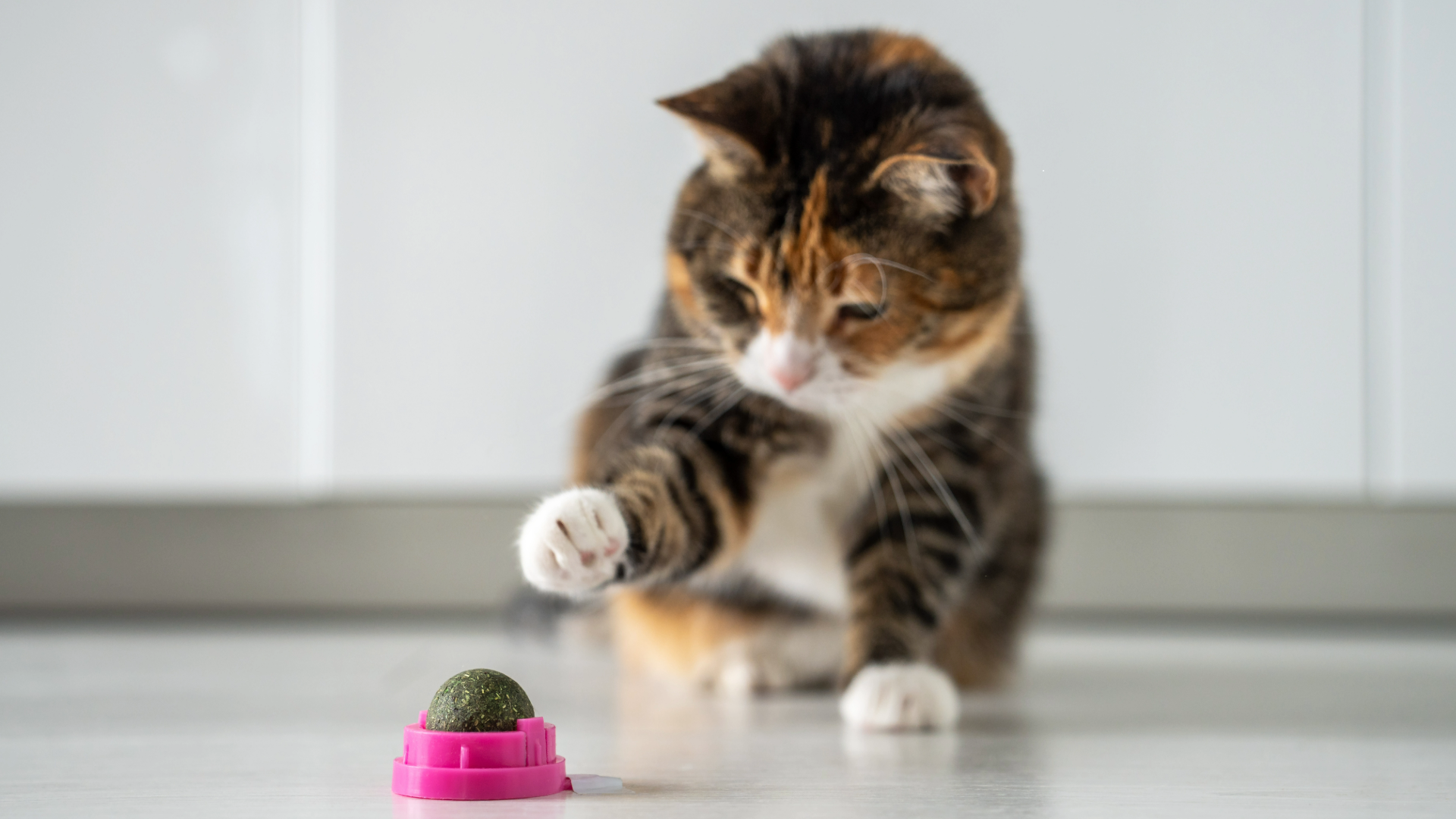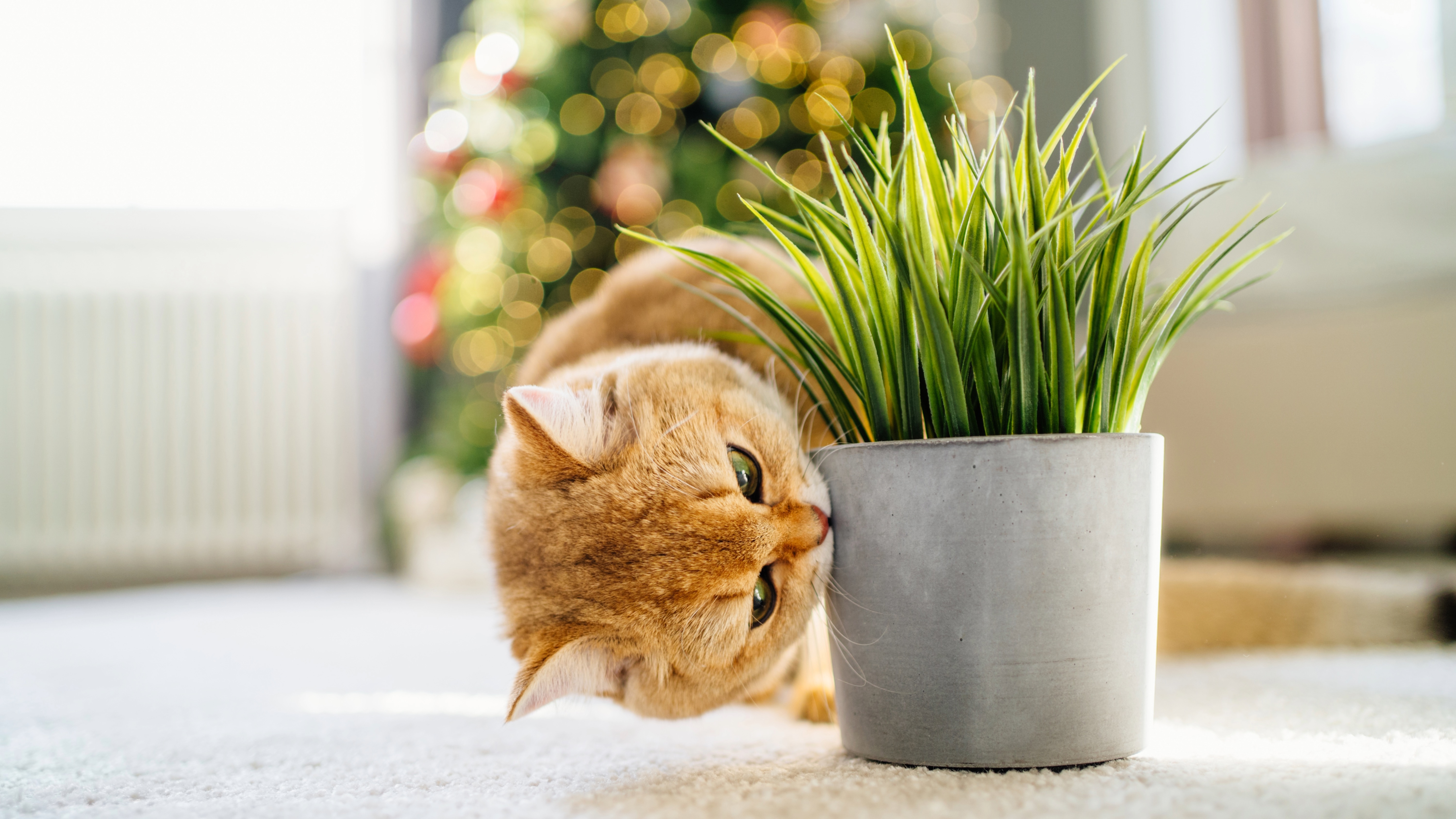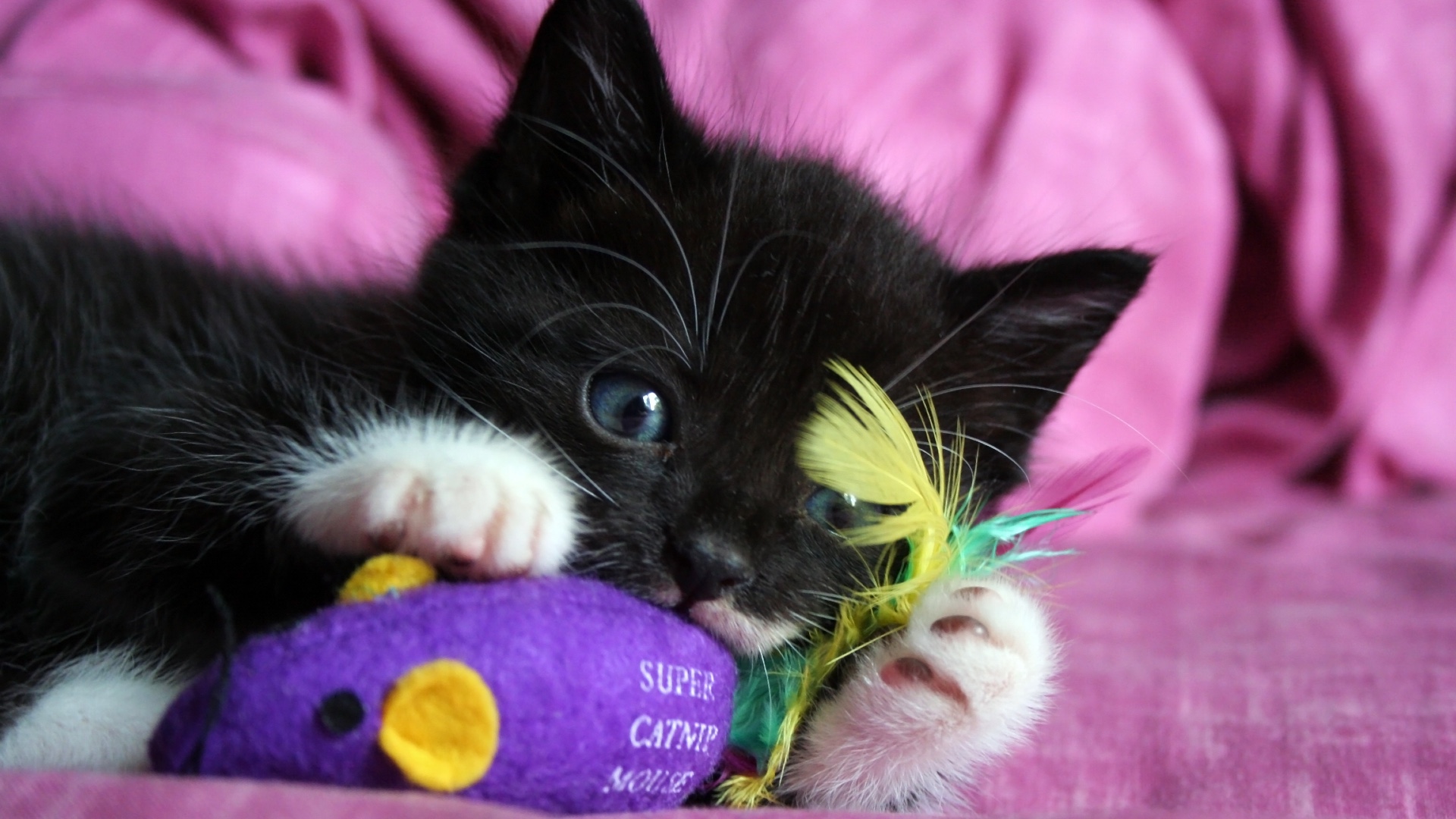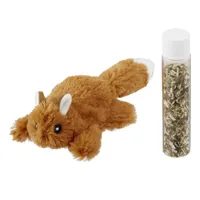Can kittens have catnip? A vet shares her thoughts
Wondering, ‘Can kittens have catnip?’ Dr. Woodnutt is here to answer your questions!

Get the best advice, tips and top tech for your beloved Pets
You are now subscribed
Your newsletter sign-up was successful
If you’ve ever wondered, ‘Can kittens have catnip?’ you’re not alone. The plant is known for its strange effects on felines – like rolling around, vocalizing, and relaxation – so it’s understandable to question whether it’s safe for little ones too.
As long as you don’t overdo it, catnip is perfectly safe for kittens to play with. You can even buy the best catnip toys to save yourself the trouble of applying it manually. However, there are a few things to keep in mind, like the fact that kittens might not even respond to it until they reach a certain age.
Below, vet Dr. Joanna Woodnutt explains everything you need to know before introducing catnip to your furry friend – including the appropriate age and what to expect. She also shares expert advice on how much to give them so you’re fully prepared.
When can kittens have catnip?
The effect produced by catnip mimics that of feline sex hormones which is why some cats react to it very strongly. Some males can react to catnip by becoming grumpy or even aggressive but kittens tend not to become sensitive to the chemical compounds in catnip until they’re between three and six months old. In some cases, this can rise to 12-months-old. And, until they’re ready, they’ll likely just ignore it.
"It’s fine for kittens to have catnip, although they may not respond to it until they’re at least three months of age,” affirms Dr. Woodnutt. “The response to catnip is thought to be down to the herb mimicking pheromones related to cats in heat. Until a kitten’s brain has matured enough to make this connection, they won’t respond to catnip," she says – which explains why newborn kittens show no interest in it.
"For some cats, this maturation occurs around three months of age, although many won’t respond until they’re six months, and some not until they’re a year old," Woodnutt adds.

How should I give kittens catnip?
It’s best to start at the age of three months. If your cat ignores the catnip, put it away but continue to offer it at intervals until your cat is a year or so old, If he’s not interested by then, then it’s unlikely he ever will be. In the meantime, bear in mind that catnip loses its potency over time, so keep containers tightly sealed. If you grow your own supply of the herb, you can freeze it and dole it out gradually.
Get the best advice, tips and top tech for your beloved Pets
Cats interact with catnip in different ways – they sniff it, eat it or sometimes both. What’s really interesting is that the way they engage with it can cause different reactions and it’s always worthwhile understanding why your kitty goes crazy for catnip.
When cats sniff catnip the scent triggers endorphins (happy hormones) in the brain. It causes cats to zoom around the room (also known as cat zoomies), yowling, rolling and generally having a great time. Such behavior normally lasts for about 10 minutes or so. This is completely normal, and in a couple of hours or so he’ll be back for more.
When cats eat catnip, however, it causes a more mellow, chilled out reaction – but you need to be mindful that there are limits. "If your kitten eats larger amounts of catnip, this can result in stomach upset,” Woodnutt explains. “Most adult cats avoid this as they self-regulate, but kittens may be prone to over-indulging."
But is catnip actually good for kittens? "While I wouldn’t recommend feeding catnip to kittens because they won’t get any benefit from it, it’s not likely to harm them if they tear open a packet and eat a small amount," Woodnutt explains.

Can kittens have catnip toys?
Like all young animals, kittens require a lot of stimulation to keep their inquisitive minds entertained and prevent them from getting bored. Catnip toys can prove extra-interesting, helping to stave off boredom and they can be a good solution when it comes to how to fix common kitten behavior problems. There is no harm in giving them to kittens. Just be aware that they run the risk of running into furniture when they’re playing ‘zoomies’ following contact, so you should make sure they’re supervised.
If you have a kitty who reacts strongly to catnip, then you can also use it as a training aid. Rub their scratching post with catnip oil to encourage puss to use it, or tempt him in from outside with the promise of the tempting treat.
Frisco Squirrel Plush Cat Toy with Refillable Catnip | Chewy
This is one of our favorite cat toys of all time and is super affordable at under $5 – especially since it comes with a tube of catnip! If the toy loses its potency, you can refill it via the pocket, making it a long-lasting choice your cat won’t get bored of.
What is catnip?
Catnip is a plant called Nepeta cataria and it is a member of the mint family. Also known as catswort, catwort or catmint, its stems, leaves and seeds contain a chemical compound called nepetalactone which has a smell that cats absolutely adore. When kitties roll in the plant, oils are released leading to a wonderful aroma that has an effect on cats for between 30 minutes and a couple of hours. After that, they start to lose sensitivity to it and therefore become less interested.
How much catnip do you give a kitten?
Catnip isn’t toxic or addictive, so if your kitty accidentally overdoses then it’s pretty unlikely to cause major problems. However, kittens have sensitive digestive systems and eating too much of the potent herb could cause vomiting or diarrhea. While adult cats tend to self-moderate, young animals are not normally known for their self-control.
Fresh leaves are more potent than dried, so if you grow your own fresh catnip, keep the plant where your pet can’t reach it. For a kitten, try rubbing a toy with catnip to see how strongly they react. If you’re feeding catnip, start off with very small amounts, such as half a teaspoon a day. If you’re using a commercially prepared product such as dried leaves or a catnip spray, follow the dosage instructions on the packaging.
Giving catnip to your kitty in moderation is completely safe and won’t hurt him – it might even be good for his digestion to have a small daily dose. If it makes him hugely excited, just make sure you hide all your breakables before you unleash the catnip mouse!
If your cat doesn't react to catnip, you might want to read our feature that answers, 'What is silver vine?' You might also be wondering 'Does catnip get cats high?' Or, for more playtime tips, read how to play with a kitten and how to make DIY kitten toys.

Dr. Joanna Woodnutt graduated as a veterinarian from the University of Nottingham in the United Kingdom in 2016 and went on to practice companion animal medicine in the Midlands. She quickly developed a love of consulting and helping clients with medical problems such as dermatology, behavior, and nutrition. Dr Woodnutt is a regular contributor to PetsRadar providing readers with expert advice on how to raise happy and healthy pets.
Edited by Georgia Guerin and Alexis de Leaver.
This page was last updated on February 27 by Megan Milstead.
Sara is a freelance journalist and copywriter of many years’ experience with a lifelong love of animals. She’s written for a range of magazines and websites on subjects varying from pet care to travel. A horse rider since the age of five, she’s currently a full time pet slave to horse Blue and gorgeous, goofy English Springer Spaniel Olly. Adorable Olly has a huge sense of adventure and no sense of direction, keeping Sara on her toes.
- Dr Joanna Woodnutt MRCVSVet
- Megan MilsteadStaff Writer


